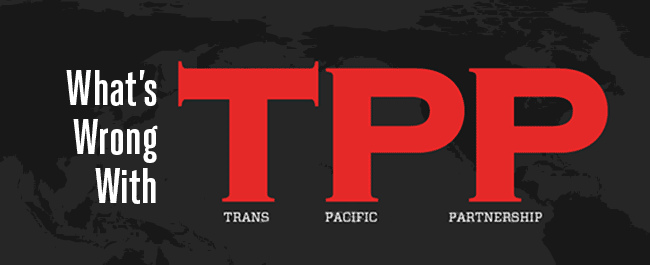The Trans-Pacific Partnership (TPP), a multi-national trade agreement that is being considered by 12 countries, stirs up controversy in its effect on pharmaceutical innovation.
In an article published in the Research in Social & Administrative Pharmacy (RSAP), Robert A. Freeman, PhD, of the Department of Pharmacy Practice and Administration at The University of Maryland Eastern Shore, Princess Anne, Maryland, USA details three primary areas of controversy:
- With particularly negative effects on low-income countries, pharmaceutical prices will be driven up.
- Individual countries whose policies might affect the financial health of large, multi-national pharmaceutical companies have potential for litigation.
- The pharmaceutical industry has a protectionist influence in the negotiations, and its negotiation positions are at odds with public health.

(Photo credit: Julianita Qué Tal, https://www.flickr.com/photos/julianitaquetal/8664186602)
According to the article in RSAP:
“Trade agreements are an overlooked area of research and policy analysis that affect market access, pricing and reimbursement decisions by pharmaceutical manufacturers, and research and development decisions in the long term. . . . As in the case of other trade arrangements, the TPP negotiations are not transparent, but a major leak of the most recent draft has been published in WikiLeaks. The leaked document has raised a number of concerns about intellectual property rights (IPR) and regulatory data protection (RDP) that have implications for public health and economic policy throughout the region.”
Shane P. Desselle, PhD, of Touro University California College of Pharmacy, and Applied Pharmacy Solutions, Editor-in-Chief of RSAP, said: “The effect on drug prices, particularly generic drugs, will diminish access to essential medications among underserved populations in developing nations.”
A press release on the article details the potential economic complications further:
“With regard to the pricing issue, Professor Freeman discusses the industry-wide form of price discrimination, known as Ramsey pricing, in which prices are set on the basis of a market segment’s or country’s wiliness and ability to pay. The concern is that if the agreement forces a single price for all countries party to the agreement, this price may well be lower than is economically viable for pharmaceutical companies to maintain.”
With regards to the litigation question, in the TPP, “legal disputes would be tried before a court of private attorneys appointed by the World Bank or United Nations,” reports one source. “It is feared that the suits could challenge national laws that violate free market principles outlined in the agreement.”
Modern trade agreements are a much more central part of foreign policy (and even domestic lawmaking) since it encompasses a broad range of regulatory and legal issues.
The countries considering the TPP are as follows:
- United States
- Australia
- Canada
- Japan
- Malaysia
- Mexico
- Peru
- Vietnam
- Chile
- Brunei
- Singapore
- New Zealand
Lead image photo credit: Nanatsubo.
Follow us on Twitter and Facebook for updates on the latest pharmaceutical and biopharmaceutical manufacturing news!




